Discover Dysregulated Kids: Science-Backed Parenting Help for Behavior, Anxiety, ADHD and More
Dysregulated Kids: Science-Backed Parenting Help for Behavior, Anxiety, ADHD and More

Dysregulated Kids: Science-Backed Parenting Help for Behavior, Anxiety, ADHD and More
Author: Dr. Roseann Capanna Hodge
Subscribed: 28,736Played: 318,455Subscribe
Share
© Copyright 2025 Dr. Roseann Capanna Hodge
Description
Are you tired of the daily battles, the problems with listening and focus, meltdowns over minor frustrations, and the constant feeling of walking on eggshells in your own home? If you're a parent who feels overwhelmed, stuck in a cycle of reactivity, and utterly exhausted from trying to manage your child's challenging behaviors, you are not alone. You've tried everything—the sticker charts, the timeouts, the endless negotiations—but nothing creates lasting change.
The answer isn't more discipline. The secret is understanding the brain. Welcome to Dysregulated Kids: Science-Backed Parenting Help, the podcast that is revolutionizing the way we parent.
Hosted by Dr. Roseann Capanna-Hodge, a licensed therapist, school psychologist and author with over 30 years of experience in children's mental health and recognized by Forbes as a thought leader in children's mental health, this podcast is your lifeline. Dr. Roseann pulls back the curtain on why your child or teen is struggling, whether they have a clinical diagnosis like ADHD, Anxiety, Autism, OCD, Depression, Dyslexia, Executive Functioning challenges, Lyme, or PANS/PANDAS, or are simply navigating the ups and downs of everyday life.Her revolutionary Regulation First Parenting™ approach teaches that calming the nervous system is the first step before you can connect, teach, or help your child learn.
In short, actionable episodes, Dr. Roseann gives you proven tools like the CALMS Protocol™, quick nervous system reset tools and co-regulation strategies to move your child (and yourself!) from stress and reactivity to calm, connection, and resilience. You'll learn what to say and do to de-escalate meltdowns in the moment, how to build your child's emotional regulation skills, and how to improve their executive functioning and attention so they can succeed at home, at school, and in life.
Imagine shifting your entire perspective from seeing "defiance" to understanding "dysregulation." Picture yourself feeling confident and equipped, knowing exactly how to respond in those tough parenting moments. This is the transformation that awaits you. Parents discover how to break free from the reactivity cycle and build a more connected, joyful family—going from helpless and frustrated to empowered and hopeful.
Here's what you can expect from Dysregulated Kids:
Real Solutions for Real Problems – Whether you're dealing with ADHD, anxiety, sensory overload, meltdowns, or everyday struggles, Dr. Roseann brings strategies that actually work.
Science-Backed Parenting Tools – Learn how to understand your child's nervous system and apply research-driven calming strategies to create a peaceful, happy home.
Practical Advice You Can Use Today – Each episode delivers focused, actionable content without the fluff—just pure wisdom you can apply to your family right away.
Empowerment and Hope – Dr. Roseann blends expert knowledge with deep empathy for the challenges parents face, helping you feel confident that you can make positive change.
This podcast is for parents of the "reactive" kid or the child who feels more, reacts to little things more, and just needs more from you. It's for parents of neurodivergent children or kids struggling with mental health challenges. Really this show is for all parents dealing with typical stressors who want to raise emotionally intelligent, resilient kids in a world that is more demanding and chaotic than ever.
If you've seen Dr. Roseann on TV, you know she doesn't shy away from real talk about real problems. She brings that same authenticity and expertise to every episode, combining hope with science to help you calm the brain and create a happier family.
Are you ready to stop just surviving and start thriving? Subscribe now and start your journey toward a calmer brain and a happier family today.
For more resources, show notes, and to connect with Dr. Roseann, visit drroseann.com.
The answer isn't more discipline. The secret is understanding the brain. Welcome to Dysregulated Kids: Science-Backed Parenting Help, the podcast that is revolutionizing the way we parent.
Hosted by Dr. Roseann Capanna-Hodge, a licensed therapist, school psychologist and author with over 30 years of experience in children's mental health and recognized by Forbes as a thought leader in children's mental health, this podcast is your lifeline. Dr. Roseann pulls back the curtain on why your child or teen is struggling, whether they have a clinical diagnosis like ADHD, Anxiety, Autism, OCD, Depression, Dyslexia, Executive Functioning challenges, Lyme, or PANS/PANDAS, or are simply navigating the ups and downs of everyday life.Her revolutionary Regulation First Parenting™ approach teaches that calming the nervous system is the first step before you can connect, teach, or help your child learn.
In short, actionable episodes, Dr. Roseann gives you proven tools like the CALMS Protocol™, quick nervous system reset tools and co-regulation strategies to move your child (and yourself!) from stress and reactivity to calm, connection, and resilience. You'll learn what to say and do to de-escalate meltdowns in the moment, how to build your child's emotional regulation skills, and how to improve their executive functioning and attention so they can succeed at home, at school, and in life.
Imagine shifting your entire perspective from seeing "defiance" to understanding "dysregulation." Picture yourself feeling confident and equipped, knowing exactly how to respond in those tough parenting moments. This is the transformation that awaits you. Parents discover how to break free from the reactivity cycle and build a more connected, joyful family—going from helpless and frustrated to empowered and hopeful.
Here's what you can expect from Dysregulated Kids:
Real Solutions for Real Problems – Whether you're dealing with ADHD, anxiety, sensory overload, meltdowns, or everyday struggles, Dr. Roseann brings strategies that actually work.
Science-Backed Parenting Tools – Learn how to understand your child's nervous system and apply research-driven calming strategies to create a peaceful, happy home.
Practical Advice You Can Use Today – Each episode delivers focused, actionable content without the fluff—just pure wisdom you can apply to your family right away.
Empowerment and Hope – Dr. Roseann blends expert knowledge with deep empathy for the challenges parents face, helping you feel confident that you can make positive change.
This podcast is for parents of the "reactive" kid or the child who feels more, reacts to little things more, and just needs more from you. It's for parents of neurodivergent children or kids struggling with mental health challenges. Really this show is for all parents dealing with typical stressors who want to raise emotionally intelligent, resilient kids in a world that is more demanding and chaotic than ever.
If you've seen Dr. Roseann on TV, you know she doesn't shy away from real talk about real problems. She brings that same authenticity and expertise to every episode, combining hope with science to help you calm the brain and create a happier family.
Are you ready to stop just surviving and start thriving? Subscribe now and start your journey toward a calmer brain and a happier family today.
For more resources, show notes, and to connect with Dr. Roseann, visit drroseann.com.
371 Episodes
Reverse
Discover the real reason you’re stuck in power struggles with your child and why discipline often fails. I’ll show you how understanding your child’s nervous system transforms conflict into calm, using my Regulation First Parenting™ strategies. Parenting can feel overwhelming, especially when every morning feels like a standoff or every request turns into conflict. You’re not alone. Many parents find themselves exhausted trying discipline systems, charts, or punishments—only to watch the same struggles repeat.In this episode, I share practical Regulation First Parenting™ strategies to break free from daily power struggles and help your child—and yourself—find calm and connection.Why am I always stuck in power struggles with my child?The truth is, power struggles aren’t about willfulness—they’re a direct result of a dysregulated nervous system. When a child’s brain is overstimulated, their emotional brain takes over, and logic and reasoning go offline.This can affect personal relationships at home and even influence how children interact in their work environment or with peers, making it harder to maintain a fulfilling life for the whole family.Without understanding these cues, parents can lose sight of their child’s deeper emotional needs, and behaviors may appear as a defense mechanism rather than purposeful disobedience.Tips to break the cycle:Pause before reacting: Your own nervous system sets the tone, helping you stay present instead of getting stuck in the same place of repeated conflict.Co-regulate first: Match your child’s emotional state before attempting correction.Focus on connection: Eye contact, soft tone, and proximity help your child feel safe.Real-Life ExampleAlex, a 9-year-old, transformed mornings from 45 minutes of chaos to 10 minutes of calm by teaching both him and his mom how to regulate before acting.How can I teach my child to regulate emotions instead of punishing them?Discipline systems only work when the frontal lobes are online. If a child is stressed, fearful, or dysregulated, punishment will often escalate conflict instead of teaching self-control.Takeaways:Regulate first, connect second, teach third.Use quick rituals like deep breaths, tapping, or short mindfulness exercises.Name what’s happening in the body, not who the child is: “Your body is tense—let’s calm it together” instead of “Stop being lazy.”When your child is dysregulated, it’s easy to feel helpless.The Regulation Rescue Kit gives you the scripts and strategies you need to stay grounded and in control.Become a Dysregulation Insider VIP at www.drroseann.com/newsletter and get your free kit today.What role does my own self-awareness play in power struggles?Your own feelings and nervous system deeply influence your
Are you stuck in co-dysregulation? When your child’s nervous system spikes, yours can too—creating a cycle of stress and overwhelm. In this episode, I share Regulation First Parenting™ strategies to calm both you and your child.When your child’s emotions spike, it can feel like a wildfire—and sometimes, it spreads to you too. You’re not alone.This episode dives into the real science behind co-dysregulation and how your own nervous system directly affects your child’s emotional regulation. Learn practical, step-by-step strategies to stay calm, reset your nervous system, and help your child self-regulate.Why Do I Catch My Child’s Emotions?Ever notice how your stress seems to mirror your child’s? That’s your mirror neurons in action, and it’s a core part of co regulation.Research suggests that your child’s brain literally mirrors yours, sensing tension through your tone, posture, and facial expressions, shaping their emotional responses and stress response.Key takeaway: If your body signals threat, your child’s nervous system picks it up instantly, increasing emotional dysregulation and potentially impacting their mental health.Emotional emphasis: It’s not bad parenting—it’s biology.Parent StoryOne mom realized her lecturing only escalated her son’s meltdown. Pausing and softening her voice changed the dynamic entirely.What Is Co-Dysregulation and Why Does It Happen?Co-dysregulation happens when both parent and child’s nervous systems spike at the same time. It’s a reactivity loop: the child dysregulates, the parent gets triggered, stress amplifies, and both spiral.Tip: Pause before responding. Ask yourself, “Am I calm enough to help?”You cannot calm a dysregulated child from a dysregulated state. Your own nervous system must lead the way.Parent StoryA parent learned to step back, breathe deeply, and approach calmly—creating a de-escalated environment where learning and problem-solving became possible.You don’t have to figure this out alone.Become a Dysregulation Insider VIP and get your FREE Regulation Rescue Kit: How to Stay Calm When Your Child Pushes Your Buttons and Stop Oppositional Behaviors.Head to www.drroseann.com/newsletter and start your calm parenting journey today.How Can I Co-Regulate Instead of Escalate?Co-regulation isn’t about fixing your child—it’s about anchoring both of your nervous systems in safety. The polyvagal theory shows that a regulated adult cues a child’s body to stand down from threat.Practical steps:Take a deep breath, stretch, or move to calm yourself first.Lead with safety, not control—lower your voice, soften your face, slow your movements.Remember: kids learn by catching your calm, just as they catch chaos.Parent StoryOne mom stopped lecturing mid-meltdown, observed the pattern, and used one simple calming phrase to guide her child back to emotional regulation.🗣️ “When your child’s meltdown triggers yours, you’re not failing—you’re catching their emotional fire, and the one who comes first wins for both.”— Dr. RoseannWhat
When your child melts down, every parent feels that moment of panic—What do I say? How do I help them calm? In this episode, I break down the 4 Calming Phrases Parents Say Changed Everything and how these simple, rhythmic statements help a dysregulated brain return to safety and connection.Parenting a child whose emotions shift from zero to one hundred can feel overwhelming, but understanding what the brain needs in those tense moments changes everything. These phrases aren’t fluffy scripts. They’re co-regulation tools that speak directly to a child’s nervous system, reduce overwhelm, and open the door to emotional learning.This episode offers practical guidance on why these phrases work, how to use them during real-life meltdowns, and how parents can stay grounded even when their child is losing control.Why do calming phrases work better than lectures during meltdowns?When a child is in fight, flight, or freeze, they literally can’t hear you. Logical thinking and critical thinking skills shut down as survival mode takes over. That’s why telling a child to “calm down,” “stop crying,” or “use your words” never works in the red zone—no matter your parenting style.Calming phrases act as safety cues. They help create a shift because they:Support emotional regulation in both parent and childPrevent you from barking orders when you’re stressedSignal safety so a child can feel connected rather than overwhelmedMake space for real boundary setting and the ability to set limitsReduce the urge for people pleasing or power strugglesCreate the conditions where kids learn instead of shut downStrengthen the entire family dynamic through calm communicationThese cues slow the moment and tell your child’s brain, “You’re not in danger. You’re not alone.”And that’s when real connection—and real teaching—can finally happen.If you’re tired of walking on eggshells or feeling like nothing works…Get the FREE Regulation Rescue Kit and finally learn what to say and do in the heat of the moment.Become a Dysregulation Insider VIP at www.drroseann.com/newsletter and take the first step to a calmer home.What are the 4 calming phrases parents say changed everything?1. “I’m with you.”This phrase instantly grounds a child who feels scared, overwhelmed, or ashamed.It tells their nervous system they aren’t alone, which is essential for emotional regulation.A parent shared that after years of nightly homework battles, whispering “I’m with you” softened her child’s panic—and changed the emotional tone of their entire household.2. “Let’s slow down.”Kids borrow our rhythm. When you slow your voice, breath, and movements, their brain naturally syncs to your calm.Saying “Let’s slow down” teaches emotional pacing and helps them step out of survival mode and back into connection.3. “We’ll get through this.”Dysregulated kids often think the moment is catastrophic. This phrase restores perspective and safety.It teaches resilience—not avoidance—and shows your child that problems are temporary and manageable with support.4. “It’s okay to feel upset.”Validation lowers cortisol and reduces overwhelm.Instead of shutting emotions down, this phrase teaches kids that...
Ever wonder why your child seems calm all day but melts down at night? I explain why child's meltdowns begin when the nervous system finally exhales, and share Regulation First Parenting™ strategies to help kids self-regulate. Parenting a child whose emotions swing from calm to chaos can feel overwhelming, especially at night. Understanding why child's meltdowns begin and how to respond with compassion can transform bedtime from a battle into a moment of connection.This episode dives into the triggers behind evening meltdowns and how to use proactive strategies to support emotional regulation.Why does my child meltdown as soon as bedtime arrives?Evening meltdowns aren’t about defiance—they’re about decompression.After a full day of school, activities, and sensory input, your child’s nervous system is depleted. Their brain finally “exhales,” which can lead to:Cortisol spikes that make relaxation difficultRestlessness and avoidance as the body struggles to calmReassurance-seeking behaviors fueled by anxiety or OCDReal-Life ExampleYour child who seemed perfectly calm all day suddenly refuses to get into bed, insisting on checking locks repeatedly. These challenging behaviors are their brain’s way of saying, “I’m overwhelmed and need safety.”How can I help my child self-regulate before bedtime?Leading with calm is key. You can’t lecture a dysregulated brain—co-regulation comes first.Start 30 minutes early: Dim lights, lower voices, and turn off screens.Introduce a wind-down ritual: Stretching, quiet music, or gentle yoga can cue the brain for sleep.Use humor and gentle touch: A hug or light hand pressure can reinforce safety and connection.🗣️ “When the sun goes down, your child's brain isn't trying to ruin things. It's trying to release from the day.”— Dr. RoseannWant to stay calm when your child pushes every button?Become a Dysregulation Insider VIP and get the FREE Regulation Rescue Kit—your step-by-step guide to stop oppositional behaviors without yelling or giving in.Go to www.drroseann.com/newsletter and grab your kit today.What are common triggers for toddler temper tantrums and meltdowns in young children?Evening meltdowns are often unlike tantrums seen earlier in the day. Common triggers include:Sensory overload from lights, sounds, or devicesUnexpected changes in routineEmotional distress or anxiety around school, tests, or social interactionsParent fatigue—co-dysregulation can escalate meltdownsProactive strategies:Teach coping skills like deep breathing, short stretches, or grounding exercises.Reinforce positive behaviors and model calm responses to help your child learn self-regulation over time.Struggling to help your child calm down quickly?Try Quick CALM, a science-backed mini course reset designed to settle your child’s nervous system and reduce meltdowns fast.How can I reinforce positive behaviors and manage future tantrums?Creating a predictable, calming bedtime...
Many bright kids struggle daily in school, and it’s not because of laziness or lack of effort. The real reason your child is struggling in school is often a dysregulated nervous system. I’ll show you how Regulation First Parenting™ strategies help kids calm, focus, and thrive.Every parent knows the sinking feeling when homework, tests, or transitions turn your child’s school day into a battle. It’s tempting to think the problem is effort, attitude, or ability—but the truth is, learning, focus, and motivation depend on regulation. When a child’s nervous system is overstimulated or under stimulated, even the brightest students can struggle academically.In this episode, I break down why kids across all ages—from preschoolers to college students—face learning challenges, and how parents can partner with schools and use evidence-based strategies to unlock their child’s full potential.Why does my child melt down over schoolwork or transitions?Many children experience sensory or emotional overload, leading to meltdowns, avoidance, or shutdowns. Younger kids often face developmentally inappropriate expectations or tasks that feel too big, which triggers fight, flight, or freeze responses.Recognizing that every child has different learning styles is key, because what feels overwhelming to one child may feel manageable to another. Understanding your child’s learning process helps you tailor support and maintain progress in their child’s education, whether during the regular school year or even summer school.Tips for parents:Break tasks into manageable steps and offer sensory breaks.Validate your child’s feelings: “I see this is overwhelming, let’s take a minute.”Incorporate short nervous system resets, like deep breathing, gentle movement, or butterfly tapping.Real-Life ScenarioA preschooler refuses to start writing. Using a 3-minute reset and offering a small, achievable writing goal helps her calm and complete the activity.How can I help my middle or high schooler stay motivated?Middle and high school kids face growing demands on executive functioning—planning, organizing, and emotional regulation—all while managing increased homework, quizzes, and tests.Chronic stress can lead to procrastination, anxiety, or perfectionism, even in academically strong students.Tips for parents:Request a team meeting with teachers, guidance counselors, or case managers.Identify simple classroom supports, like sensory breaks or visual schedules.Encourage small, consistent self-regulation practices daily.🗣️ “You can’t pour knowledge into a brain that’s on fire—calm the brain first, and learning will follow.” — Dr. RoseannWhat can I do for my child’s learning in college?College is a test of independence and executive functioning.Without prior support, students may experience burnout, missed deadlines, anxiety, or withdrawal, regardless of intelligence. Nutrition, sleep, and coping strategies directly impact their academic performance and self-esteem.Tips for parents:Encourage self-advocacy and identify the school’s learning center resources.Know critical deadlines for dropping or adjusting classes to protect grades and...
Child meltdowns spike when plans change because your child’s brain feels unsafe and the nervous system goes into survival mode. I’ll guide you through Regulation First Parenting™ strategies to calm, support, and help your child adapt with confidence.Every parent knows the moment when plans change and your child suddenly spirals into tears, anger, or shutdown. It feels overwhelming, frustrating, and sometimes even personal—but you’re not alone.In today’s episode, we explore why these meltdowns happen and practical ways to help your child stay regulated and resilient.Why does my child shut down when plans change?It’s not defiance—it’s anxiety in disguise. Many children struggle with flexibility because their nervous system craves predictability.When plans change, the amygdala—the brain’s fear center—takes over, and the prefrontal cortex responsible for logic goes offline.Small changes feel like danger to a dysregulated brain.Stress accumulates silently throughout the day (think schoolwork, transitions, friendships), filling your child’s “stress cup.”Meltdowns are the overflow, signaling their brain is overwhelmed.Parent StoryMaria’s daughter, Molly, would explode every weekend when plans shifted. By previewing the day and co-regulating, Maria helped Molly feel safe—and those meltdowns stopped.How can I help my child cope with unexpected changes?The key is regulation first, flexibility second. You can’t force a child to adapt if their nervous system is in survival mode. Instead:Preview changes in advance—give gentle warnings or visual schedules.Co-regulate through transitions—model calm, name emotions, and breathe together.Practice flexibility in small doses—switch dinner seating or minor routines while your child is calm.Tip: Every time your child navigates a small change successfully, their brain rewires for resilience. Predictability isn’t coddling—it’s scaffolding their emotional growth.Why do some kids struggle more than others?Nervous system sensitivity plays a big role.Children with neurodivergence, trauma histories, or heightened sensory experiences often feel emotions and changes more intensely. Their brains are wired to survive, not to negotiate logic in the moment.Over- or under-stimulation can trigger emotional dysregulation.Daily stress adds up, making even minor changes feel impossible.Developmental expectations vary by age, from toddlers needing reassurance to teens pushing back verbally.A tween might say, “You ruined everything!” while a teen might retreat with, “I don’t care.” Same nervous system reaction—different expression.Get instant tools to soothe your child’s stress and prevent meltdowns—grab your Quick CALM now at https://drroseann.com/quickcalm/What mistakes do parents make during meltdowns?It’s natural to want to lecture, explain, or impose consequences—but when the brain is in red-zone survival mode, logic doesn’t land.Talk less, a...
Is everyday stress quietly rewiring your child's brain? Learn how chronic stress reshapes the nervous system, affects emotional regulation, and how small, practical lifestyle changes can protect your child’s brain health.Parenting a child whose emotions swing from calm to chaos can feel overwhelming. Everyday pressures—school demands, social tension, family stress—can quietly rewire your child’s brain, pushing it into a constant state of survival mode. But the good news? You can change these patterns.In today’s episode, we break down how chronic stress affects brain development, why your child may seem "overly reactive" or withdrawn, and practical tools you can use to build emotional resilience and calm.Why does my child overreact to small stressors?Your child's brain is highly responsive to repeated stress, especially those with trauma, neurodivergence, or sensory sensitivities. Chronic stress strengthens fear circuits in the amygdala while weakening prefrontal cortex control, making your child more prone to anxiety, meltdowns, or overreaction.Takeaways:Frequent stress rewires the brain: the more your child experiences stress, the stronger the fear pathways become.Behavior reflects the brain: meltdowns aren’t misbehavior—they’re signs of an overactive stress response.Small moments add up: transitions, noise, or school pressures can overflow your child’s stress cup.Real-Life ExampleJess noticed her son melting down every afternoon. By adding a quiet snack and a two-minute decompression before homework, she saw his meltdowns reduce within a month.How can I tell if my child’s nervous system is overstimulated or under-stimulated?Overstimulation looks like constant movement, big emotions, defiance, sleep troubles, and hyper-reactivity. Under-stimulation shows as daydreaming, zoning out, sluggishness, or excessive caffeine use in teens. Both reflect dysregulated stress response patterns.Tips for parents:Observe daily patterns in behavior and energy.Offer micro resets: 1–2 minute stretches, humming, tapping, or deep breathing.Track stressors to notice triggers and early warning signs.Quick CALM™ gives your child fast, simple tools to reset their nervous system and regain emotional control in moments of stress. With easy, science-backed techniques, it helps kids stay grounded, focused, and calm—so you can reduce meltdowns and boost everyday resilience.What can parents do to protect the brain during stressful moments?Regulate first, teach second. Your calm acts as the anchor for your child’s nervous system. Predictable routines and lifestyle changes—hydration, sleep, magnesium-rich foods—help balance stress hormones and protect brain structure.Action Steps:Incorporate short, frequent nervous system breaks.Prioritize predictable schedules and safe environments.Co-regulate for connection before correction—behavioral learning happens when your child feels safe.🗣️ “Every meltdown isn’t a tantrum—it’s your child’s nervous system overflowing. You can teach their brain to recover,...
If you’ve spent months—or years—in therapy and your child is still melting down, avoiding schoolwork, or unable to calm their body, you are not alone. And it’s not because the therapy is “bad” or you’re doing anything wrong. The real issue is that their brain can’t use the strategies yet.That’s where neurofeedback comes in. Today’s episode dives deep into the science of why so many kids stay stuck and why regulation must come first before any traditional therapy can work.Why isn’t therapy working for my child’s chronic meltdowns?It’s not your parenting, and it’s not that therapy “failed.”Often, traditional talk therapy assumes the prefrontal cortex—our thinking brain—is online. When your child is stuck in fight, flight, or freeze, that part of the brain shuts down, affecting how your brain functions, cognitive function, and overall brain health.Key takeaways:Dysregulation is biological, not behavioral. Kids know what to do but can’t act when their nervous system is stressed, affecting mental health disorders, anxiety symptoms, and overall brain function.Frontal lobe offline = skills don’t stick. Strategies learned in therapy may not transfer at home because brain waves aren’t balanced.Red flags: prolonged emotional resets, sleep or eating issues, constant overwhelm, and hypervigilance—common in mental health conditions and sometimes linked to chronic pain.Real-Life ExampleEthan struggled for two years in therapy. He could talk about his feelings but couldn’t apply any strategies at home, showing that knowledge alone doesn’t fix brain dysregulation or improve cognitive function.Once neurofeedback training targeted his brain’s communication centers through QEEG brain mapping, he began to pause, self-regulate, and thrive.This shows how brain science and precise interventions can create better mental health, strengthen overall brain function, and help children manage mental health disorders more effectively.How does neurofeedback therapy actually help the brain self-regulate?Neurofeedback uses real-time feedback to train the brain to recognize and correct its own brainwave patterns. Using QEEG brain mapping, practitioners identify areas of brain dysregulation and guide the nervous system back to balance.Tips for parents:Sessions are short: 20–30 minutes, 2–3 times per week.Neurofeedback strengthens emotional regulation, focus, and impulse control over time.It complements, rather than replaces, therapies like talk therapy, occupational therapy, or cognitive behavioral therapy.A child resistant to therapy often refuses to engage. With neurofeedback, even small, gentle “micro-workouts” of brain training can create lasting changes in nervous system regulation.Feeling stuck in constant meltdowns or anxious moments at home?Take control of meltdowns with Quick CALM™, a science-backed mini-course with the essential tools to calm your child’s brain—and yours too—so peace can finally return to your home.When should I consider neurofeedback for my child?Look for these red flags:Therapy progress is stalled or inconsistentEmotional resets take hours instead of minutesSleep, eating, or sensory issues persistConstant...
If you’ve ever wished you could peek inside your child’s brain during a meltdown or when they completely shut down, today’s episode is for you. We’re diving into QEEG brain maps—one of the most powerful, yet most underused tools for understanding what’s really driving big emotions, focus issues, and chronic dysregulation.For three decades, I’ve watched families bounce from diagnosis to diagnosis… ADHD, anxiety, “behavioral issues.” And while those labels can be helpful, they’re often surface-level.A QEEG lets us look under the hood so we can finally stop guessing. Because when we calm the brain first, everything else follows.Why So Many Kids Get the Wrong DiagnosisParents are often told their child has ADHD simply because they’re unfocused or overwhelmed. But ADHD criteria are broad—so broad that almost any dysregulated kid can fit the checklist. That’s why so many families show up after trying meds, OT, tutoring, and therapy with little or no progress.A QEEG changes that.This quantitative brain map shows where the brain is overactive, underactive, or disconnected, and those patterns tell us far more than a checklist ever could. I’ve done over 10,000 brain maps, and they consistently reveal what teachers, therapists, and even doctors miss.A Real Story: When ADHD Wasn’t ADHDOne mom, Sarah, came to me after years of trying to help her son Jack. He had an ADHD diagnosis, but nothing worked—not medication, not OT, not therapy.His brain map showed focus issues, yes… but more importantly, it pointed to learning and executive functioning patterns that suggested dyslexia. After a deeper history and a follow-up evaluation at school, dyslexia was confirmed.Suddenly everything made sense. Jack didn’t need a stronger stimulant—he needed a reading intervention. Once we supported his brain through neurofeedback and the right academic supports, the whole picture changed.This kind of story is far too common.Want to stay calm when your child pushes every button?Become a Dysregulation Insider VIP and get the FREE Regulation Rescue Kit—your step-by-step guide to stop oppositional behaviors without yelling or giving in.Go to www.drroseann.com/newsletter and grab your kit today.QEEG vs EEG: What’s the Difference?An EEG is a medical tool used to detect seizures. A QEEG—or quantitative EEG—measures the brain’s electrical activity and compares it to normative data.It’s:PainlessNoninvasiveDone with a soft cap and sensorsDesigned to map overactivity, underactivity, and connectivityThink of it like getting a satellite image of your child’s brain weather patterns—where storms are brewing, where things have gone quiet, and where communication lines are overloaded.What Dysregulation Looks Like on a Brain MapA dysregulated brain can’t shift smoothly between states—calm, alert, focused. On a QEEG, that shows up as:Underactivity → brain fog, low motivation, slow processingOveractivity → big emotions, anxiety, OCD-like reactionsChaotic connectivity → trouble transitioning, rigid thinking,...
Parenting a child who goes from calm to chaos in seconds can feel exhausting. You try everything—deep breaths, gentle words, even walking away—and still, the meltdowns come. You’re not alone.When kids struggle with big emotions, there’s often a hidden root cause inside the body—and minerals play a much bigger role than most parents realize.In this episode, I sit down with Dr. Aaron Hartman to unpack the powerful connection between minerals, mitochondria, and meltdowns—and how nutrition, lifestyle, and nervous system regulation can help your child regain balance and calm.Why does my child melt down when they’re “just tired or hungry”?When your child seems to unravel at the smallest thing, it’s not bad behavior—it’s biology. Mineral imbalances directly affect how their nervous system fires.Low magnesium or zinc deficiency can make the brain more reactive to stress.When blood sugar drops from skipping meals or eating too many processed foods, the body burns through nutrients fast—leading to irritability, anxiety, or panic attacks.A deficient diet full of additives and low in whole foods affects serotonin, dopamine, and other key neurotransmitters.When we calm the brain first and nourish the body, meltdowns start to fade.Takeaway: A balanced diet rich in real food, protein, and calming minerals helps stabilize your child’s emotions and energy.Need quick relief while you work on those root causes? Try Quick Calm—my proven method to calm the brain fast so you and your child can reset and start fresh.Could my child’s mood swings be linked to mineral deficiencies?Absolutely. Research continues to show how essential minerals affect mental well-being and brain function.Here’s what parents need to know:Zinc deficiency is linked with attention deficit disorder (ADD/ADHD), depression, and poor immune function.Magnesium supports relaxation and sleep by calming overactive neurons.B vitamins and vitamin D play a critical role in serotonin production—affecting mood and focus.Too much copper or exposure to heavy metals can worsen anxiety, aggression, and brain fog.HTMA testing (Hair Tissue Mineral Analysis) can reveal these hidden imbalances, helping you target the root cause instead of chasing symptoms.🗣️“When your child’s body is missing key nutrients, their brain can’t regulate emotions—no matter how many coping tools you teach.” –Dr. RoseannWhat are simple ways to boost my child’s mineral intake naturally?You don’t need to overhaul your entire pantry overnight. Start small—consistency is what matters most.Choose whole foods over processed snacks. Think nuts, seeds, eggs, leafy greens, and clean proteins.Add trace minerals or electrolyte drops to water for gentle, steady support.Use zinc supplements or a high-quality multivitamin only when guided by a practitioner.Cook with healthy fats (omega-3-rich oils, avocado, grass-fed butter) to enhance absorption of fat-soluble vitamins.Involve your kids—make it fun with family “squat-offs” or walks after...
Parenting a child, tween or teen who swings from calm to chaos in seconds can leave you walking on eggshells. One minute they’re fine, and the next—doors slam, voices rise, and you’re wondering what just happened. You’re not alone. Those big mood swings aren’t “attitude.” They’re signals that your child’s nervous system is in distress.Let’s dive into the hidden clues your child's, tween’s or teen’s nervous system is in trouble, how to decode them before they explode, and practical steps to bring calm back to your home.Why does my kid overreact to small things?When your child melts down over a lost pencil or a simple “no,” it’s not defiance—it’s a sign of an overwhelmed nervous system. Their brain is already running on empty, and even a tiny trigger can send them over the edge.What this means:Overreactions = stress overload. Their stress cup is full, and every little thing spills over.Persistent irritability or mood whiplash can signal emotional dysregulation, not disrespect.Physical signs like chest tightness, rapid heartbeat, or stomach pain often accompany these reactions.🗣️ “Behavior is communication. Once you learn to read these cues, you stop reacting to the behavior and start guiding your child back to calm.” –Dr. RoseannWhy can’t my kid calm down after getting upset?If your teen stays upset long after the conflict ends, that’s a clue their body’s stress response hasn’t shut off. Their stress hormones keep them on high alert, making it hard to return to balance.Try this:Regulate first. Take one deep breath before engaging. When you calm your brain, it helps theirs settle too.Name the shift. Say, “I can see this feels really big for you.” Validation lowers the nervous system threat.Use micro-resets. Short breaks, snacks, or movement stop the spiral.Remember: the more calm happens, the more calm happens.Is shutting down or saying “I don’t care” a warning sign?When teens go silent, refuse to talk, or withdraw, it’s often freeze mode, not attitude. This happens when their nervous system feels unsafe or overwhelmed—a common sign of emotional strain or unresolved trauma.Look for:Sudden withdrawal from friends or activitiesChanges in eating or sleep habits—like skipping meals, difficulty falling asleep, or frequent nightmaresPhysical complaints such as headaches, stomach pain, or fatigueA trauma-informed approach helps teens feel seen, not shamed. It’s not bad parenting—it’s a dysregulated brain.If you’re tired of walking on eggshells or feeling like nothing works…Get the FREE Regulation Rescue Kit and finally learn what to say and do in the heat of the moment.Become a Dysregulation Insider VIP at www.drroseann.com/newsletter and take the first step to a calmer home.Why does my child struggle with focus or schoolwork?Stress doesn’t just...
When every request turns into a power struggle, it can leave you exhausted, frustrated, and questioning everything you’re doing as a parent. But here’s the truth: your child isn’t trying to make your life harder—their brain is stuck in survival mode.Let me break down what’s really happening when kids seem defiant and how parents can shift from chaos to calm using three powerful regulation steps. You’ll learn how to decode oppositional behavior, why it’s not about disrespect, and what you can do today to help your child feel safe and cooperative again.Why Does My Child Say “No” to Everything?When your child refuses to listen or melts down over simple requests, it’s not bad behavior—it’s a dysregulated nervous system.Here’s what’s really happening:Their brain has gone into survival mode, shutting down logic and reasoning.That “no” is often a stress response, not manipulation.Many kids labeled with Oppositional Defiant Disorder (ODD) or other mental health conditions like ADHD, anxiety disorders, or mood disorders are really struggling with nervous system overload.Think of it like a smoke detector that’s too sensitive—it goes off even when nothing’s really burning. When your child’s stress cup is overflowing, every small demand feels like too much.Behavior is communication. Your child’s defiance is their brain’s way of saying, “I can’t handle this right now.”Is My Child’s Oppositional Behavior Really About Anxiety or Control?For many kids, saying “no” is an unconscious coping mechanism. It helps them avoid anxiety triggers or regain a sense of control when life feels unpredictable.Here’s what’s going on beneath that resistance:Anxious avoidance: Kids learn that saying “no” helps them keep anxiety lower.Loss of control: When kids feel powerless, they fight to regain safety.Sensory overload: Every transition, sound, or demand adds another drop to their stress cup.🗣️ “The more dysregulated they are, the more oppositional they become. And when parents respond from stress too, it amplifies the cycle.” –Dr. RoseannKey takeaway: Opposition isn’t disrespect—it’s the nervous system’s cry for safety and connection.You don’t have to figure this out alone.Become a Dysregulation Insider VIP and get your FREE Regulation Rescue Kit: How to Stay Calm When Your Child Pushes Your Buttons and Stop Oppositional Behaviors.Head to www.drroseann.com/newsletter and start your calm parenting journey today.What Can I Do When My Child Refuses to Cooperate?Here is a simple, science-backed three-step plan parents can use right away:Regulate first.You can’t calm your child if you’re dysregulated yourself.Take deep breaths, move your body, or pause before reacting.Your calm signals safety and helps your child’s brain shift out of fight-or-flight.Offer two choices.Keep it simple: “Do you want the red shirt or the blue shirt?”This restores healthy control without giving up...
Parenting a child who’s melting down while you’re barely holding it together yourself can feel impossible.One minute you’re calm, and the next—you’re yelling too. You didn’t mean to, but their meltdown triggered yours. You’re not alone, and it doesn’t mean you’re a bad parent. It means both of your nervous systems are overwhelmed.Let me share why this happens and exactly how to stop the cycle of dysregulation before it spirals out of control. You’ll learn how your calm can anchor your child, what to do in the heat of the moment, and how small shifts can lead to lasting change in your family.Why Do I Lose My Cool When My Child Has a Meltdown?When your child screams, your nervous system feels it. That’s because of mirror neurons—the part of the brain that syncs emotions and energy between people. Your child’s chaos can trigger yours, just like your stress can trigger theirs.Here’s what’s happening:Your stress cup overflows just like your child’s. Every demand, noise, or unexpected change adds a drop until you spill over.Your survival brain takes over. Logic goes offline, patience disappears, and you react instead of respond.You move into fight, flight, or freeze, which makes emotional regulation nearly impossible.🗣️ “When meltdowns meet meltdowns, everyone’s brain goes offline. That’s why we calm the brain first—because no one can think when they’re in survival mode.” –Dr. RoseannWhat Should I Do When My Child’s Behavior Triggers Me?When that meltdown starts brewing, it’s not about perfection—it’s about presence.Try these calming techniques in the moment:Pause and breathe. Slow, deep breathing resets your nervous system and helps you stay grounded.Notice your body. Are your shoulders tight? Is your breathing shallow? These are early signs you’re dysregulated.Step away if needed. It’s OK to say, “I love you, but I need a minute to calm my body.”Anchor with calm body language. Kneel down, soften your voice, and lower your tone. Your calm presence helps your child’s brain feel safe again.Remember: Behavior is communication. Your child isn’t trying to make you lose it—they’re showing you that their nervous system needs help to regulate emotions.Yelling less and staying calm isn’t about being perfect—it’s about having the right tools.Join the Dysregulation Insider VIP list and get your FREE Regulation Rescue Kit, designed to help you handle oppositional behaviors without losing it.Download it now at www.drroseann.com/newsletterHow Can I Break the Cycle of Reactivity in My Family?I once worked with a dad named Michael who constantly clashed with his son, Jordan. Every argument ended in shouting matches—until Michael realized something powerful: he was getting pulled into the same dysregulated state as his child.When he learned to pause, breathe, and step back before reacting, everything changed. His calm energy helped Jordan settle faster—and the daily battles stopped.Key takeaways for parents:You set the...
Parenting a child who melts down over socks that “feel weird” or a sandwich cut the “wrong” way can leave you wondering what’s really going on. You try to stay calm, but inside you’re thinking, Seriously? This can’t be about the sandwich.You’re not alone—and you’re not a bad parent. The truth is, those small moments aren’t small at all when your child’s stress cup is overflowing.Let me break down why your child freaks out over the smallest things and how to calm the brain first so everyone can find peace again. You’ll learn how to spot the warning signs of a full stress cup, what’s happening in your child’s brain during a meltdown, and simple ways to help them regulate—without power struggles or guilt.Why Does My Child Melt Down After School?Ever notice how your child holds it together all day at school—only to fall apart the second they walk in the door? That’s the stress cup effect. Every challenge, noise, and demand throughout the day adds a “drop” to your child’s nervous system. By the time they get home, that cup is full, and even seemingly small things push them over the edge.Here’s what fills your child’s stress cup:Classroom stress and transitionsSensory overload (sounds, textures, smells)Hunger and fatigueSocial struggles with other kidsHigh expectations or perfectionismWhen the brain is overstressed, logic and problem-solving shut down, and big emotions take over. That’s why reasoning in the heat of the moment rarely works—you’re talking to a brain that’s gone offline.Try this:Pause before reacting. Your calm becomes their calm.Offer a short regulation break (quiet time, water, movement) before talking.Create predictability. Use gentle countdowns and routines to lower stress.Why Do Simple Things Feel Like a Big Deal?When your child cries or screams over “nothing,” it’s not manipulation—it’s dysregulation. The meltdown isn’t about the apple slices or the wrong color cup; it’s about a nervous system that can’t take one more drop.Here’s what’s really happening:The amygdala (the brain’s alarm system) hijacks control.The prefrontal cortex—the part that helps kids think and reason—goes offline.Small frustrations suddenly feel enormous.So when your child says they “hate” their shirt or “can’t handle” their homework, it’s a cry for help, not defiance.What helps instead:Co-regulate first. Anchor your own emotions before helping your child.Name what’s happening. “It sounds like you’ve had a really hard day.”Micro resets. Stretch, take a breath, sip water—each helps pour stress out of the cup.If you’re tired of walking on eggshells or feeling like nothing works…Get the FREE Regulation Rescue Kit and finally learn what to say and do in the heat of the moment.Become a Dysregulation Insider VIP at www.drroseann.com/newsletter and take the first step to a calmer home.How Can I Help My Child Cope With Big Emotions?For a...
Parenting a child who constantly melts down—even when you’ve tried every gentle parenting tip out there—can leave you exhausted and doubting yourself.You’re doing your best to be calm and validating, yet you still feel like you’re walking on eggshells. You’re not alone. The truth is, gentle parenting isn’t enough on its own—and understanding whycan completely change your family dynamic.Let’s break down what gentle parenting gets right, what it misses, and how to help your child truly regulate and thrive. Learn more about why empathy without boundaries backfires, what “Regulate, Connect, Correct” really means, and how to shift from over-validation to true emotional safety.Why Doesn’t Gentle Parenting Always Work?Gentle parenting promotes empathy, validation, and connection instead of harsh punishment. That’s beautiful in theory—but many parents discover it’s not enough in real life.Here’s why: Validation alone doesn’t calm a dysregulated brain.Kids may feel heard, but not necessarily safe.A dysregulated nervous system can’t learn, connect, or cooperate.Empathy without boundaries often fuels anxiety and chaos.When kids stay stuck in big emotions, they become dependent on constant reassurance instead of learning self-regulation. That’s when parents start feeling drained and walking on eggshells.🗣️ “Gentle parenting only works when it’s built on regulation first.” –Dr. RoseannWhat Happens When We Over-Validate Our Kids’ Emotions?Many parents think if they just validate enough, their child will calm down. But over-validation can actually make things worse.I worked with a mom named Missy and her daughter, Emma. Missy tried so hard to ease Emma’s worries that she validated every fear—“We’ll get there on time,” “It’ll be okay,” “You don’t need to worry.”But over time, Emma started needing constant reassurance just to feel calm. Her worries grew bigger, not smaller, and she began spiraling into obsessive thinking that bordered on compulsive behavior.Over-validation = more anxiety, not less.Kids learn emotions dominate, instead of learning to manage them.They need boundaries and co-regulation to feel truly safe.The truth? Validation without tools or limits can create dependence. Boundaries are what anchor a child’s nervous system and reduce anxiety.Yelling less and staying calm isn’t about being perfect—it’s about having the right tools.Join the Dysregulation Insider VIP list and get your FREE Regulation Rescue Kit, designed to help you handle oppositional behaviors without losing it.Download it now at www.drroseann.com/newsletterHow Do I Regulate First When I’m the One Who’s Overwhelmed?Parenting a dysregulated child while you’re dysregulated too is a recipe for chaos. That’s why “Regulate First Parenting” starts with you.Before reacting or rescuing, pause and breathe. That pause resets both your brain and your child’s.Try this:Pause before you validate.Don’t rescue too fast.Set a calm, clear boundary.Your calm becomes your child’s calm. This is co-regulation in action—the process of letting your child “borrow” your steadiness. When
Parenting a child who won’t even try can break your heart. You ask, you remind, you offer rewards—and still, they resist or melt down. You’re not imagining it, and you’re not failing as a parent. It’s not bad parenting—it’s a dysregulated brain.Many parents worry their child is lazy, unmotivated, or just doesn’t care about school or responsibilities. But what if what’s really happening isn’t laziness at all—what if your child’s brain is shutting down under stress? In this episode, I explain why motivation struggles often stem from nervous system dysregulation, not defiance, and share practical ways to help your child feel motivated again.Why does my child resist simple tasks like homework?When kids push back against schoolwork, chores, or routines, parents often assume it’s about attitude or lack of effort. But beneath that resistance is often stress overload.Stress shuts down the brain’s control center—the frontal lobe—making focus, planning, and problem solving nearly impossible.Even bright kids freeze when their nervous system perceives a task as too hard or threatening.“Just try harder” doesn’t work because motivation requires regulation—a calm brain can think and follow through.Punishments or charts can’t fix dysregulation; co-regulation and structure can.When a child melts down before math or avoids starting, think: Their brain can’t, not won’t.Is my child lazy or is something else happening?Labels like “lazy” or “unmotivated” only feed shame—and shame blocks learning and confidence.A child with low self-esteem or repeated failures may fear trying again.Shame walls off effort; it turns “I can’t” into “I won’t.”Kids who hyperfocus on screens but avoid schoolwork aren’t choosing fun over success—they’re avoiding discomfort.When the brain feels unsafe, motivation drops and avoidance rises.So before assuming your kid doesn’t care, ask: Is their nervous system overwhelmed? Behavior is communication—their resistance is a signal, not defiance.How can I help my unmotivated child feel successful again?Regulation first. Always. When your child is calm, they can connect, think, and act.Start small: Break big tasks into micro steps—one sentence, one problem, one drawer.Co-regulate: Sit with your child to launch a task, then fade your support gradually.Praise early effort: Catch micro-wins (“I love that you opened your book!”).Build predictable routines: Consistency lowers stress and helps kids feel in control.Use micro resets: Stretch, hydrate, or breathe between steps to prevent shutdowns.These small adjustments help your child rebuild motivation, self-belief, and problem-solving skills—without constant power struggles.Ready to help your child find calm and motivation?Try my Quick CALM™—a science-backed reset that gives you the essential tools to calm your child’s brain and restore peace in your home.What can parents do when motivation swings with mood or...
Parenting a child who melts down over homework or seemingly simple tasks can feel overwhelming and exhausting. You’re not imagining it—the frustration, tears, and chaos aren’t bad behavior. It’s a dysregulated brain struggling to access its control center.In this episode, let me explain why dysregulated kids can’t use their executive function, what that means for daily life, and practical strategies to help your child regain focus, complete tasks, and strengthen their executive functioning skills.Why does my child melt down after school?Many parents notice that after a long day, their child becomes irritable or shuts down at homework time. This isn’t defiance—it’s a dysregulated brain that’s gone offline.When stress builds, it hijacks the prefrontal cortex, the control center for planning, organization, and impulse control. Your child simply can’t access their executive functions or working memory until their nervous system settles.What’s happening:Stress or sensory overload disrupts brain functions.Transitions and overstimulation lead to poor executive functioning—especially in kids with ADHD or anxiety.Their brain shifts from learning to survival mode.What helps:Co-regulate first. Your calm presence signals safety.Once calm, executive functioning skills like focus, planning, and task completion return.Let’s calm the brain first—because that’s when real learning begins.Download the Executive Functioning Toolkit — packed with science-backed strategies you can start using today to reduce stress and improve focus.How can I help my child focus when they can’t control their emotions?When emotions flood in, logic and problem-solving shut down. This is common in children with ADHD, learning disabilities, or high emotional sensitivity.Regulate first: Deep breaths, movement, or sensory grounding can reset the brain.Break tasks into small, manageable steps to avoid overwhelming a child with poor executive functioning.Use internal self-talk modeling: Narrate your planning out loud to teach cognitive strategies like task initiation and sustained attention.🗣️ “Once calm, your child’s executive functioning skills—like focus, organization, and problem solving—can finally do their job.” –Dr. RoseannWhen your child is dysregulated, it’s easy to feel helpless.The Regulation Rescue Kit gives you the scripts and strategies you need to stay grounded and in control.Become a Dysregulation Insider VIP at www.drroseann.com/newsletter and get your free kit today.What are executive functioning skills, and why do they matter?Executive functioning skills are the brain’s Job Manager: planning, prioritizing, organizing, controlling impulses, and problem-solving. Without them, even typically developing children can struggle.Start with the end in mind: Visualizing outcomes improves planning and cognitive flexibility.Teach one skill at a time, e.g., starting a task, organizing materials, or remembering steps.Recognize that strengths and weaknesses vary: A child may excel at baseball stats or...
Parenting a child who’s struggling with mysterious symptoms can be frightening and exhausting. You bring them to the doctor, the tests come back “normal,” and yet you know something isn’t right. You’re not imagining it—it’s real, and you’re not alone.In this episode, Dr. Bill Rawls explains why Lyme disease testing often misses active infections, what it means for your child, and practical steps parents can take to advocate for accurate diagnosis and care.Why does my child keep testing negative for Lyme disease even when symptoms persist?False negatives are common: Many Lyme disease tests, like the ELISA (enzyme linked immunoassay) or Western blot, rely on antibodies that may not appear early or consistently.Early infection can be invisible: During the initial infection or early Lyme disease, the immune system may not have produced enough detectable antibodies for serologic testing.Co-infections complicate results: Other tick-borne illnesses can mask or mimic Lyme disease symptoms, making accurate diagnosis even harder.Persistent or chronic infections: Sometimes, persistent infection or chronic Lyme can continue even after a negative test. Clinical findings, medical history, and physical examination help guide your provider toward the right diagnosis of Lyme disease.It’s not bad parenting—it’s a dysregulated system of testing, not a failure of your vigilance.Even when bloodwork looks clear, your child may still have an active infection. Understanding test limitations helps reduce frustration and empowers you to take action.How can I tell if Lyme disease is being missed in my child?Watch for persistent, nonspecific symptoms: Fatigue, joint pain, headaches, or cognitive changes can appear long before tests turn positive.Consider medical history and exposure: Tick bites, outdoor activities, or living in endemic areas provide important clues.Use clinical judgment alongside lab tests: A single blood test rarely tells the full story; doctors often need multiple tests and examinations.You don’t have to wait for a positive blood test to validate your child’s suffering.Ready to help your child calm down quickly and regain control? Start using Quick Calm today and discover simple, science-backed strategies to regulate their nervous system.What are the limitations of standard Lyme disease testing?ELISA and Western blot tests measure antibodies, not bacteria directly: If your child’s immune system hasn’t produced detectable antibodies, the test can look clear.False positives and delayed diagnosis are common: Inaccurate results can delay treatment, allowing Lyme bacteria to persist and cause chronic symptoms.Tests vary in performance: Different labs, methods, and timing of testing affect results.Let’s calm the brain first—then focus on gathering the right information without panic.Want to stay calm when your child pushes every button?Become a Dysregulation Insider VIP and get the FREE Regulation Rescue Kit—your step-by-step guide to stop oppositional behaviors without yelling or giving in.Go to www.drroseann.com/newsletter and grab your kit today.What should parents do if Lyme disease tests come back negative?Keep a detailed symptom log: Track fatigue, joint pain, rashes, and cognitive...
Have you ever noticed that the more you explain, the more your child melts down? Parenting a child who reacts this way can leave you exhausted, frustrated, and worried. You try to reason, but instead of calming down, your child gets even more upset. In this episode, I’ll share why talking often backfires when kids are upset, and how your calm presence, body language, and deep breaths can help your child regulate without words. You’ll discover the brain science behind co-regulation and walk away with simple, practical strategies you can use in the moment to help your child feel safe.Why does talking make my child more upset instead of calming them?When kids are dysregulated, their brain shifts into fight, flight, or freeze. Logic and language shut down, and many parents notice that their words actually feel overwhelming instead of calming.More words = more stimulation → which leads to bigger emotions.A calm body speaks louder than lectures.Behavior is communication, not defiance.🗣️ “In the heat of the moment, silence and co-regulation calm the brain faster than explanations.” – Dr. RoseannWhat can I do in the moment when my child is losing control?Instead of talking, use your body language and presence to signal safety. This is what helps many kids settle down.Take a deep breath before you respond. Ask yourself: Am I regulated enough to help my child right now?Soften your body → drop your shoulders, relax your arms, loosen your jaw.Stay at their level → for toddlers, sit on the floor; for older kids, sit nearby. Don’t loom over them.Eye contact is optional → for some children, less is more.Your calm cues reduce cortisol and show your child they are safe.When your child is dysregulated, it’s easy to feel helpless.The Regulation Rescue Kit gives you the scripts and strategies you need to stay grounded and in control.Become a Dysregulation Insider VIP at www.drroseann.com/newsletter and get your free kit today.How do I calm my child without words?Co-regulation works through silent strategies that their nervous system picks up instantly.Use rhythmic cues → slow breathing, gentle rocking, or humming. A predictable rhythm helps kids reset.Offer safe touch if welcomed → a hug, a hand on the shoulder, or letting them crawl into your lap.Stay present, not pressuring → don’t force them to talk or “explain” while upset.Kids can borrow your calm until they find their own.When your child is stuck in dysregulation, more effort isn’t the answer—a reset is. Quick CALM shows you how to calm the brain first with science-backed tools that get real results.Can my calm really teach my child self-regulation?Yes—science backs this up. Mirror neurons mean kids sync with your state, not your words. Over time, they learn to regulate by practicing alongside you.Your calm presence is the model → kids copy what they see and feel.Safety cues build connection → when a child feels safe, their brain learns new ways to manage emotions.Consistency matters → the more you practice, the more your child’s brain wires for regulation.Staying calm is not just about this moment—it’s...
Co-regulation is one of the most powerful tools we have to help children learn how to manage emotions, but many parents wonder: Am I even doing it right? When your own emotions feel overwhelming and your child’s emotions are spilling over, it can be hard to know if what you’re doing is helping.In this episode, I break down the signs you’re co-regulating effectively—and the red flags that mean you’re missing the mark. By the end, you’ll know how to create more emotional safety for your child, model healthy coping strategies, and begin to calm the brain first so that both self regulation and connection grow stronger, even in moments of emotional dysregulation.How do I know if co-regulation is actually working?When you’re practicing co-regulation, look for these green lights:You pause before reacting—even if you’re still triggered inside. That moment of not reacting right away wires calm into your nervous system and models it for your child.Your child returns to baseline faster. Meltdowns don’t magically disappear, but recovery time shortens when your child feels emotional support.You’re less reactive and more present. Instead of personalizing your child’s behavior, you can stay grounded and focus on connection.These are powerful signs you’re co-regulating right, even if the journey is messy. Remember: behavior is communication, not misbehavior.Why does my child stay upset for so long?Parents often worry: Why can’t my child just “get over it”? The truth is, dysregulated kids get stuck in stress responses.When co-regulation is working, you’ll notice:Less escalation over time—strong emotions are still there, but the intensity fades faster.More trust and closeness after difficult moments. Your child feels safe knowing you didn’t “hold it against them.”Children begin to use their own words and tools. Over time, kids copy what you model: deep breathing, naming feelings, and even humor.Emotional regulation isn’t instant. It’s about progress, not perfection.Am I making mistakes with co-regulation?Yes—every parent does. The key is knowing what might get in the way:Performing calm instead of being calm. If you’re smiling on the outside but resentful or tense inside, kids feel it in your body language, tone, and facial expressions.Rushing to fix emotions. Instead of shutting down your child’s big feelings, ride the wave with them. That’s how children learn self-regulation skills and trust that emotions aren’t life-threatening.If irritation or anger doesn’t ease over time, it may be a sign to get extra support for your own stress responses.Yelling less and staying calm isn’t about being perfect—it’s about having the right tools.Join the Dysregulation Insider VIP list and get your FREE Regulation Rescue Kit, designed to help you handle oppositional behaviors without losing it.Download it now at www.drroseann.com/newsletterWhat helps me co-regulate more effectively?Parents can build co-regulation strategies into daily life by checking in with their own emotional states first. Try:Slow, deep breathing before approaching your child.Body scans—ask yourself, Where am I tense? Can I soften this?Eye contact and active listening to show emotional support.Repair after tough moments—apologies and reconnection are powerful tools for healthy...


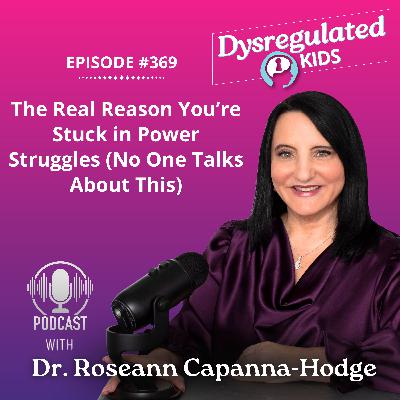
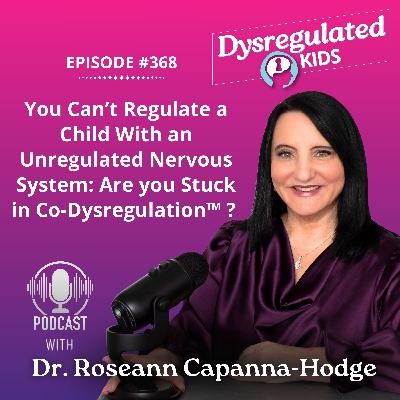
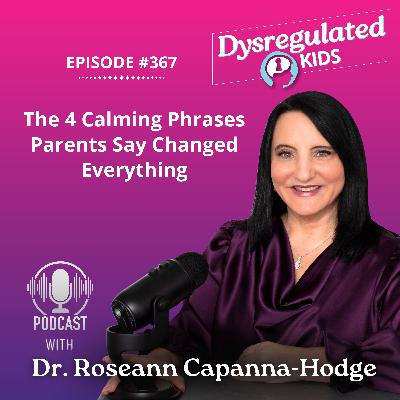
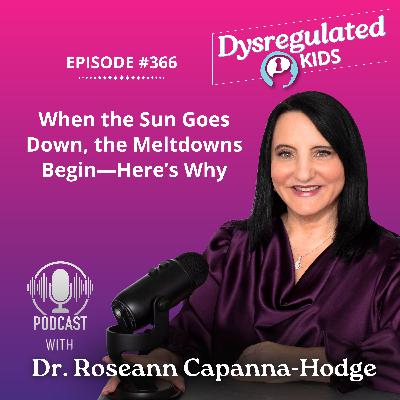
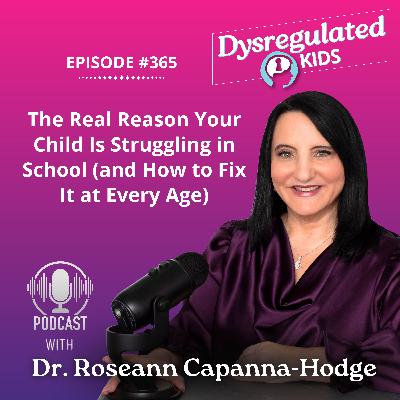

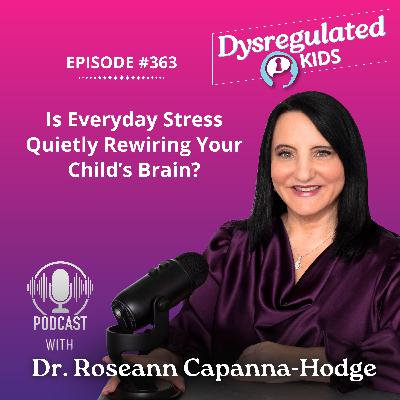
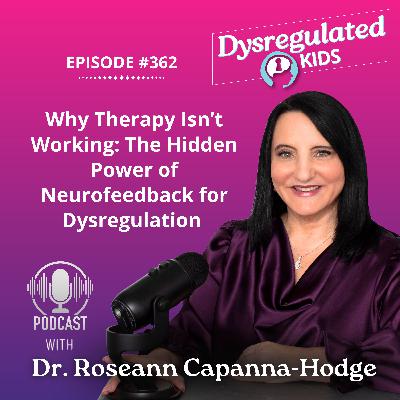
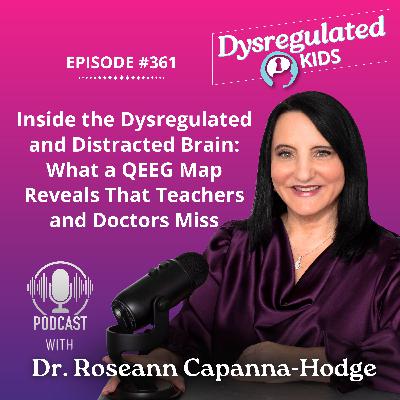
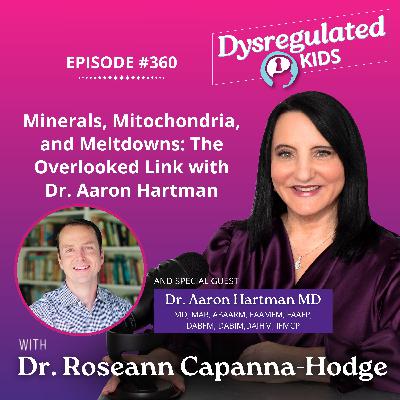
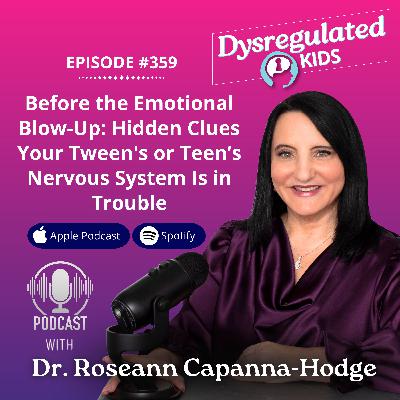
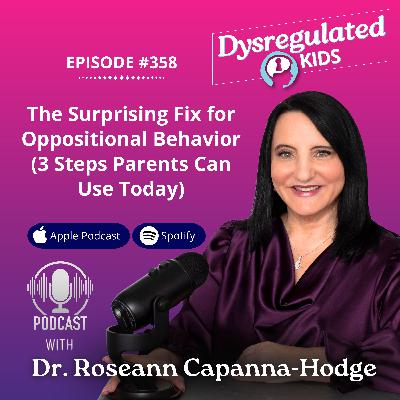
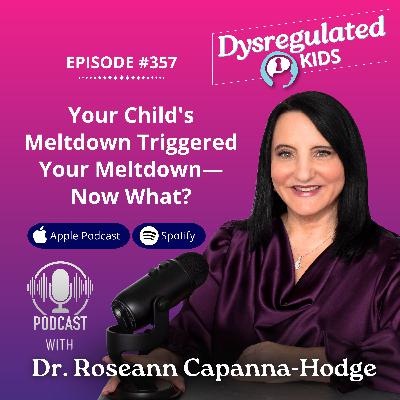
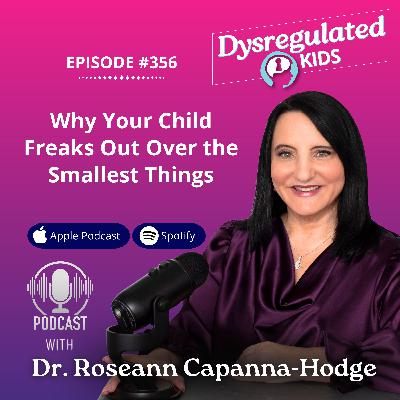
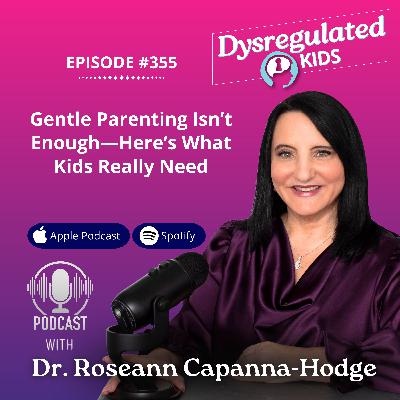
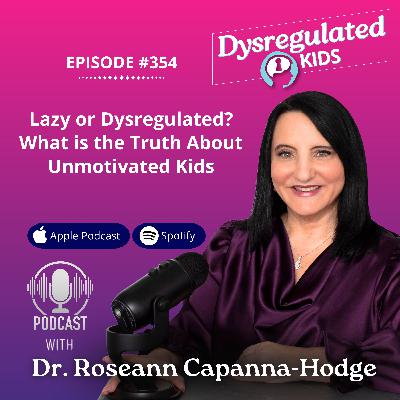



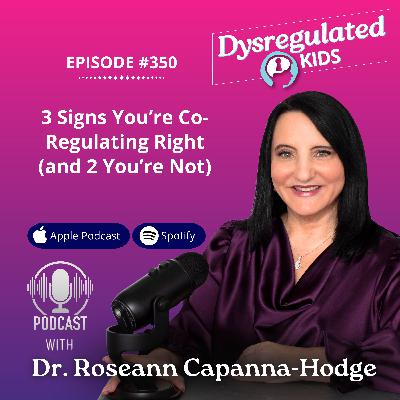



On weekends, you can not only relax. The cryptocurrency market works 24 hours / 7 days, so you can get an additional profit. We will do this using the Ethereum scaling strategy on standard technical indicators. mfi indicator crypto